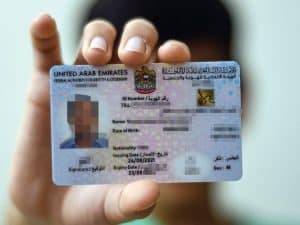HOW TO TRANSITION FROM A FREELANCE VISA TO A BUSINESS LICENSE IN THE UAE
Home – Blog

HOW TO TRANSITION FROM A FREELANCE VISA TO A BUSINESS LICENSE IN THE UAE
As a freelancer in the UAE, you’ve enjoyed the flexibility and independence that comes with working for yourself. However, as your business grows, you may find that transitioning from a freelance visa to a full business license is the next logical step. This transition can open up new opportunities, enhance your credibility, and expand your operational capabilities. Here’s a step-by-step guide on how to make that transition smoothly.
- Evaluate Your Business Needs
Before making the switch, assess your current business situation. Assess your growth potential. Determine if your freelance work has grown to a point where you need a more formal business structure. Also, assess client requirements. Some clients prefer or require working with registered companies rather than freelancers while also considering your long-term business goals and how a business license could help achieve them. - Choose the Right Business Structure
Transitioning to a business license means you’ll need to choose a legal structure that fits your needs. Common options include:
- Limited Liability Company (LLC): Suitable for most types of businesses, requiring a local partner unless set up in a free zone.
- Free Zone Company: Ideal for 100% foreign ownership, particularly for specific business activities. Each free zone has its own regulations and benefits.
- Sole Proprietorship: Allows you to run your business independently, but may have restrictions based on your business activities.
Evaluate the pros and cons of each structure to select the best fit.
- Register Your Business Name
Ensure your business name reflects your brand and complies with UAE naming regulations. It should not be similar to existing businesses and should avoid offensive terms. Once you finalize your business name, register it with the relevant authority, such as the Department of Economic Development (DED) or the free zone authority.
- Obtain a Business License
After selecting your business structure and registering your name, apply for the appropriate business license.
- Set Up Your Business Operations
Once you have your business license, it’s time to establish operation: Open a business bank account, establish a physical presence, and hire employees (if necessary).
- Transfer Your Freelance Clients
As you transition, it’s essential to inform your existing freelance clients about your new business structure. Let your clients know about the transition and how it will benefit them, such as improved service offerings or more robust support. Also revise any existing contracts to reflect your business’s new legal status and ensure compliance with local regulations.
- Market Your New Business
With your new business license in hand, it’s time to market your services. Revise your website, business cards, and social media profiles to reflect your new business status. Attend industry events and networking functions to introduce your business to potential clients and partners. And ensure to utilize online marketing strategies to promote your services and reach a wider audience.
- Stay Compliant
Transitioning to a business license comes with new responsibilities. Familiarize yourself with the legal requirements for your new business structure, including tax obligations, employment laws, and compliance regulations. Maintain thorough financial records and documentation to ensure compliance and facilitate future growth.
Conclusion
Transitioning from a freelance visa to a business license in the UAE is an important step toward formalizing your business and unlocking new opportunities. By following this guide, you can navigate the process with confidence, ensuring that your transition is smooth and successful. Embrace the advantages of being a registered business, and watch your entrepreneurial journey thrive!
Archives
Request a Customized Solution for Your Business!
Request a tailored solution crafted specifically for your organization’s challenges and goals.










